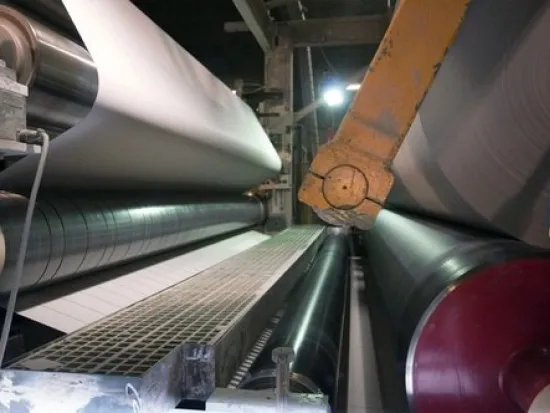The change is big and the future of the working conditions of salaried workers understandably interests our members and raises a lot of questions. We have collected frequently asked questions and their answers on this page. You can get more information by contacting the agents handling the contract areas.
Compare the differences between the paper industry employee contract and labor legislation
The terms of the employment relationship can be influenced by employment and service collective agreements. Good working conditions can only be negotiated when as many as possible are union members. The collective agreement negotiated by the trade union brings clearly better benefits than the law.
Click on the section of the collective agreement or labor legislation and read more about it.
FAQ
The paper industry white-collar worker contract ends on December 31, 2021, and the mechanical forest industry white-collar worker contract ends on February 28, 2022.
It is possible to conclude a national collective agreement between an organization representing employers nationwide and an organization representing white-collar workers nationwide (until now Metsäteollisuus ry - Ammattilitto Pro ry).
A company-specific collective agreement can be concluded with an individual company and an organization representing white-collar workers, in this case the Trade Union Pro.
A nnational collective agreement can be considered universally binding if the parties that have concluded it represent sufficiently comprehensively (at least half) the industry's employers and salaried workers. Due to the general binding nature of the collective agreement, employers and white-collar workers who are not organized into the employers' union and white-collar workers' union also have to comply.
A standard binding collective agreement means that it must be observed only between the contracting parties.
Most of the working conditions are agreed in the collective agreement of the contracting sector, some are agreed with a personal employment contract and partly they are defined through labor legislation.
The terms of employment are based only on the personal employment contract and labor legislation.
They can't, according to the rules of Pro's member associations and the union, it's not possible.
Among other things, the following working conditions have only been agreed upon through a collective agreement:
Vacation bonus
Short-time holidays
Bank holiday allowances
Sick pay
Shift work allowances and Saturday allowances
Replacement allowances
Paid short temporary leave
Paid maternity leave
Paid paternity leave
Standby and on-call allowances
Replacement of emergency work
Salary for the duration of the business trip
Daily allowance from work trips
Paid days off on anniversaries
Minimum wage and wage increases
Not necessarily, but without a new contract the employer can unilaterally take them away or make them weaker.
Compliance with the collective agreement in its entirety after its expiration as part of the employment contract is not likely. The matter must be examined on a case-by-case basis.
The aftereffect of a collective agreement refers to a situation where the validity of the collective agreement has expired and the parties to the agreement are negotiating a new agreement. Due to the after effect, the terms and conditions of the collective agreement that expired during that period are valid until a new collective agreement is agreed upon.
The possible aftereffect in this situation is uncertain, because the other party to the contract has announced that it has no intention of entering into a new collective agreement. There is no previous case law on the matter and it is legally complex.
No, the salary is usually agreed upon in a personal employment contract and is therefore a condition of the employment relationship, which can only be changed by agreement or by legal grounds for termination.
At worst, the loss of earnings can be several thousand euros per year.
No, your terms of employment are protected by a valid employment contract, collective agreement and labor legislation.
Yes, they have agreed on the terms of the employment relationship on an individual level, which cannot be changed unilaterally to the existing practices.
Changing the terms of the employment relationship is only possible by agreement or on the basis of a legal termination of the employment relationship.
If, in accordance with your employment contract, you have worked in positions that fall within the scope of the collective agreement for salaried workers, then it is a matter of changing the terms of the employment relationship, which requires an agreement or a legal basis for terminating the employment relationship.
The minimum working conditions of salaried workers are based on the collective agreement, and the working conditions of managerial staff are based on the currently valid practices decided by the employer.

Pro's goal is to secure at least the current working conditions
What is Pro going to do?
Pro's primary goal is to secure working conditions of at least the current level for its members.
How can Pro secure the working conditions of salaried workers?
Pro negotiates, agrees and signs future contracts.
How can Pro members influence future agreements?
Members should not agree on working conditions on an individual level, because it makes collective agreement and corresponding equal treatment difficult.
What else contributes to reaching contractual solutions?
The highest possible degree of organization gives the union the right to negotiate the working conditions of its members.
The status of shop stewards
Can a shop steward still be chosen for the workplace?
- Can be chosen as long as the collective agreement and the shop steward agreement that is part of it are valid.
Does the shop steward's position end at the same time as the collective agreement?
- The shop steward's task is based on the shop steward agreement to be followed as part of the collective agreement, which expires at the same time as the collective agreement. The aftereffect of the collective agreement is also uncertain in this regard.
Does the trustee have subsequent protection?
- According to Pro's interpretation, the shop steward has a six-month follow-up protection in accordance with the shop steward agreement, which takes effect after the end of the shop steward position.

Industrial action, lockouts and strike allowance
Can future contract negotiations lead to strikes and lockouts?
The probability of labor disputes is greatest for companies that are unwilling to negotiate and agree on the working conditions of salaried workers with Pro.
What does a lockout mean?
A lockout is an industrial action similar to a strike set by the employer, during which employees are prevented from working and access to workplaces.
Does Pro pay strike allowance for a possible strike or lockout and how much?
Pay, strikes and the amount of the subsidy are decided by Pro's board on a case-by-case basis.

